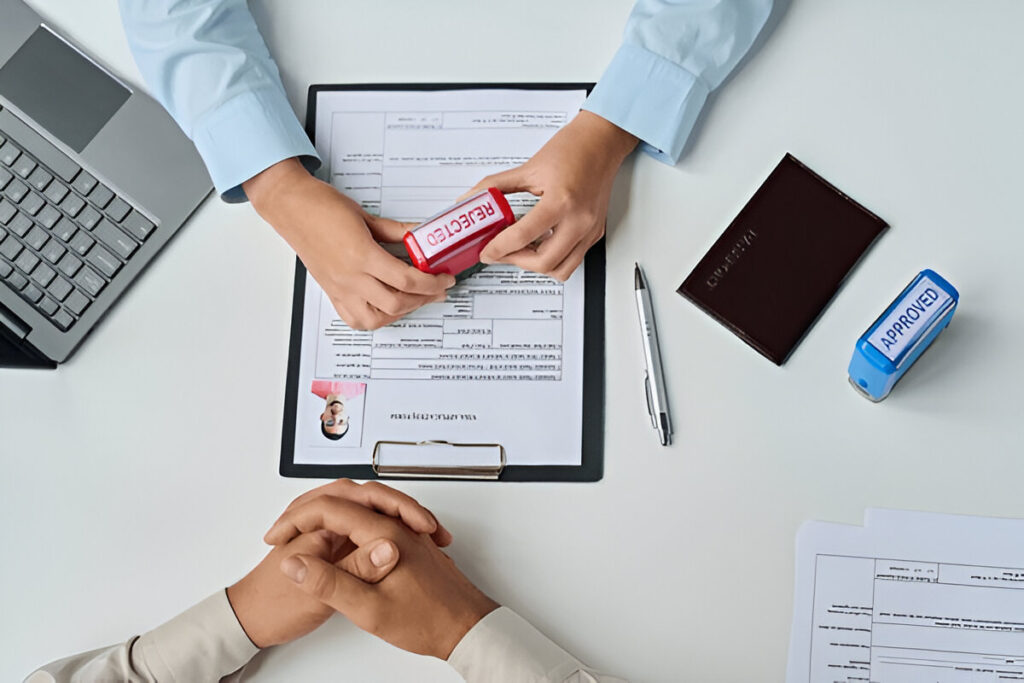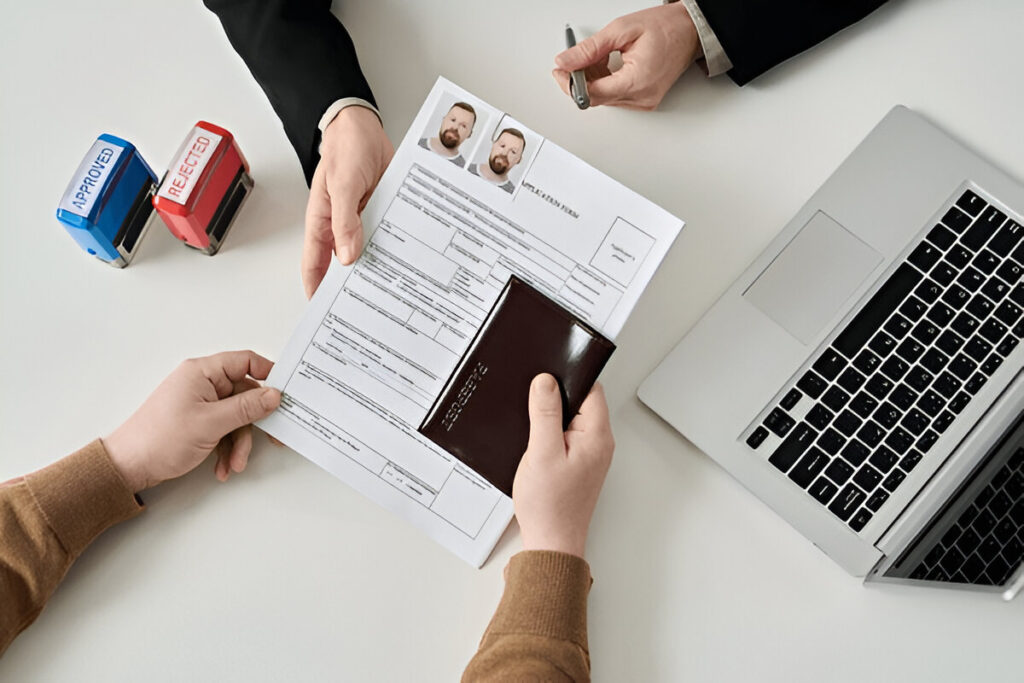Visa rejection can be frustrating and confusing, especially when you don’t know the exact reason behind it. Most applicants receive a standard refusal letter that references a section of the Immigration Nationality Act but doesn’t clearly state what went wrong.
Fortunately, there are ways to dig deeper. If you’re wondering how to check your US visa rejection reason online, this article walks you through the process, and helps you understand the bigger picture around rejection, reapplication, and success strategies.

Step-by-Step: How to Check Visa Rejection Reason Online
If your visa was denied, you were likely given a paper with a code such as 214(b), 221(g), or 212(a). These codes refer to specific parts of US immigration law and help narrow down the reason for your denial. However, to see the specific reason behind your rejection, here’s what you can do:
- Use the US Department of State’s CEAC website
Visit the Consular Electronic Application Center (CEAC) and input your visa application ID. It will show your application status such as refused, administrative processing, or issued. While it won’t give detailed reasons, if it shows Refused under Section 221(g), you can expect further instructions or document requests.
- Submit a Freedom of Information Act (FOIA) request
If you need detailed notes from your B1 B2 visa interview rejection or any other visa category, you can file a FOIA request through USCIS. This is especially useful for applicants denied under section 214(b), which is often vague and subjective.
- Email the US Embassy or Consulate
While not always successful, some consulates respond to polite inquiries asking for more context around your visa rejection.
Most Common US Visa Rejection Codes Explained
Understanding the legal codes behind rejection can give you clarity on what to correct before reapplying.
- 214(b): The most common reason for B1/B2 visa rejection and F1 visa rejection. It means the officer wasn’t convinced you had strong ties to your home country or that your trip’s purpose was genuine.
- 221(g): You’re missing a document or additional processing is needed. Not technically a rejection, but your visa is put on hold.
- 212(a): Ineligibility due to criminal history, misrepresentation, or past overstays.
- 214(b): It also impacts F2 visa rejection rate and H1B rejection rate, particularly when the applicant fails to show non-immigrant intent.
Major Reasons for Rejection by Visa Type
Each visa category has its own set of red flags. Understanding them can help you avoid common pitfalls.
B1/B2 Visa Rejection Reasons
- Lack of ties to home country (job, family, property)
- Suspicious or vague travel itinerary
- Past overstays or undocumented travel
- Prior tourist visa rejection rate by country (certain nationalities are scrutinized more due to fraud or overstay data)
F1 Visa Rejection
- Unclear academic goals
- Poor English communication during the interview
- Financial documents that don’t add up
- History of F1 visa renewal on OPT rejected due to unauthorized work or poor academic performance
H1B Visa Rejection Rate
- Employer not meeting wage requirements
- Poorly prepared application or inconsistent information
- Job not clearly specialized
D7 Visa Rejection Rate (for Portugal, often searched in the US context)
- Incomplete financial documentation
- Doubt about long-term passive income sustainability
STEM OPT Visa Rejections
- Unauthorized employment
- Missed reporting requirements
- Employer not enrolled in E-Verify

How Do I Overcome a 214(b) Visa Rejection?
- A 214(b) denial doesn’t bar you from reapplying. However, you must present new information or demonstrate changed circumstances.
- Prepare better documentation to prove your return intent, property records, job confirmation, enrollment letters, etc.
- Be confident and consistent during the interview. Answers should align with your documents and your story.
- Reapply after a reasonable gap (30–90 days) with updated support letters or life changes that support your case.
- If you’re wondering, if my visa is rejected, can I apply again? The answer is yes, but the burden of proof becomes higher after each denial.
Special Cases and Other Scenarios
US citizenship special cases may apply if your parent or spouse is a citizen. This doesn’t affect your visa application directly, but could affect the officer’s perception of your intent to immigrate.
What is a visa waiver?
The Visa Waiver Program allows citizens of certain countries to visit the US for 90 days without a visa. However, past rejections can disqualify you.
Dismissed tickets cancel visa?
Not directly, but unresolved legal issues can affect your eligibility.
Why is the gift card visa cancelling my order?
This isn’t related to immigration but those are prepaid debit card issues.
How to cancel a Prime Visa?
This refers to the Amazon credit card, unrelated to travel visas.
Can I cancel my Indian visa application?
Yes, through the Indian visa portal, but this doesn’t impact your US application.
Pro Tips to Avoid Future Rejections
- Show proof of strong economic and social ties, job, family, community involvement.
- Practice your answers but avoid sounding rehearsed.
- Never submit fake documents or lie, misrepresentation leads to permanent bans.
- Be honest about previous denials and show how you’ve addressed concerns.
Conclusion:
For anyone dealing with the emotional and logistical confusion of rejection, the key is clarity, honesty, and preparation. If you treat every application as a legal and professional pitch and not just a travel request, you’ll improve your chances significantly.
Frequently Asked Questions:
How do I know exactly why my US visa was rejected?
You can file a FOIA request with USCIS or check your CEAC status for basic codes. Detailed reasons require formal documentation.
Can I apply again after a 214(b) rejection?
Yes, but you must show new evidence or changes in circumstance. Reapplying with the same story rarely works.
Why are tourist visas often rejected for certain countries?
Countries with high overstay rates or past fraud tend to have a higher tourist visa rejection rate by country. Officers use country data trends in decision-making.
What should I do if my visa is refused under 221(g)?
Follow the instructions given and submit the missing documents or wait for administrative processing. It’s not a denial unless stated.
Do dismissed legal charges affect my visa?
Sometimes. If the incident was serious or shows up in background checks, it can be a factor under section 212(a).
